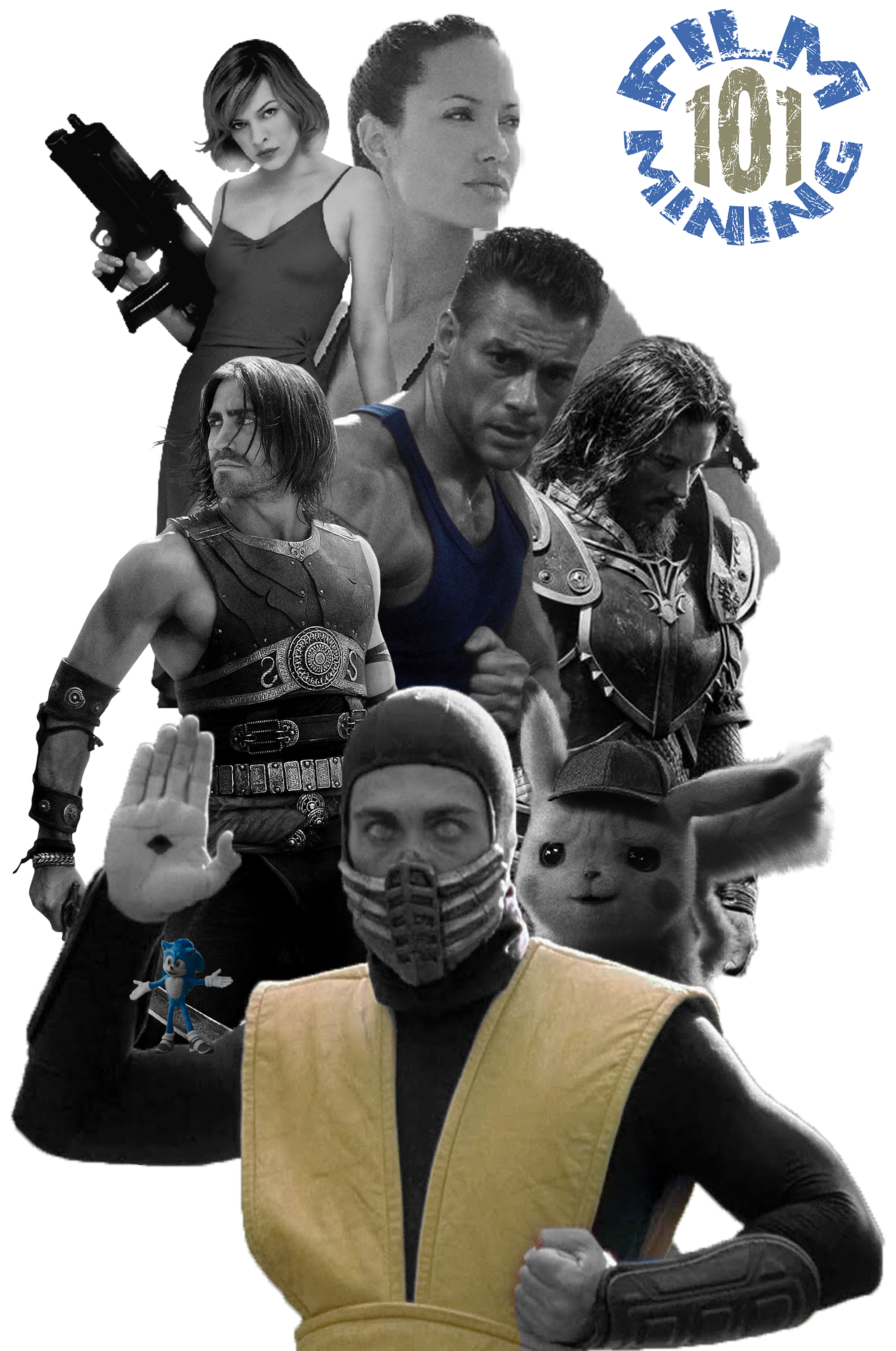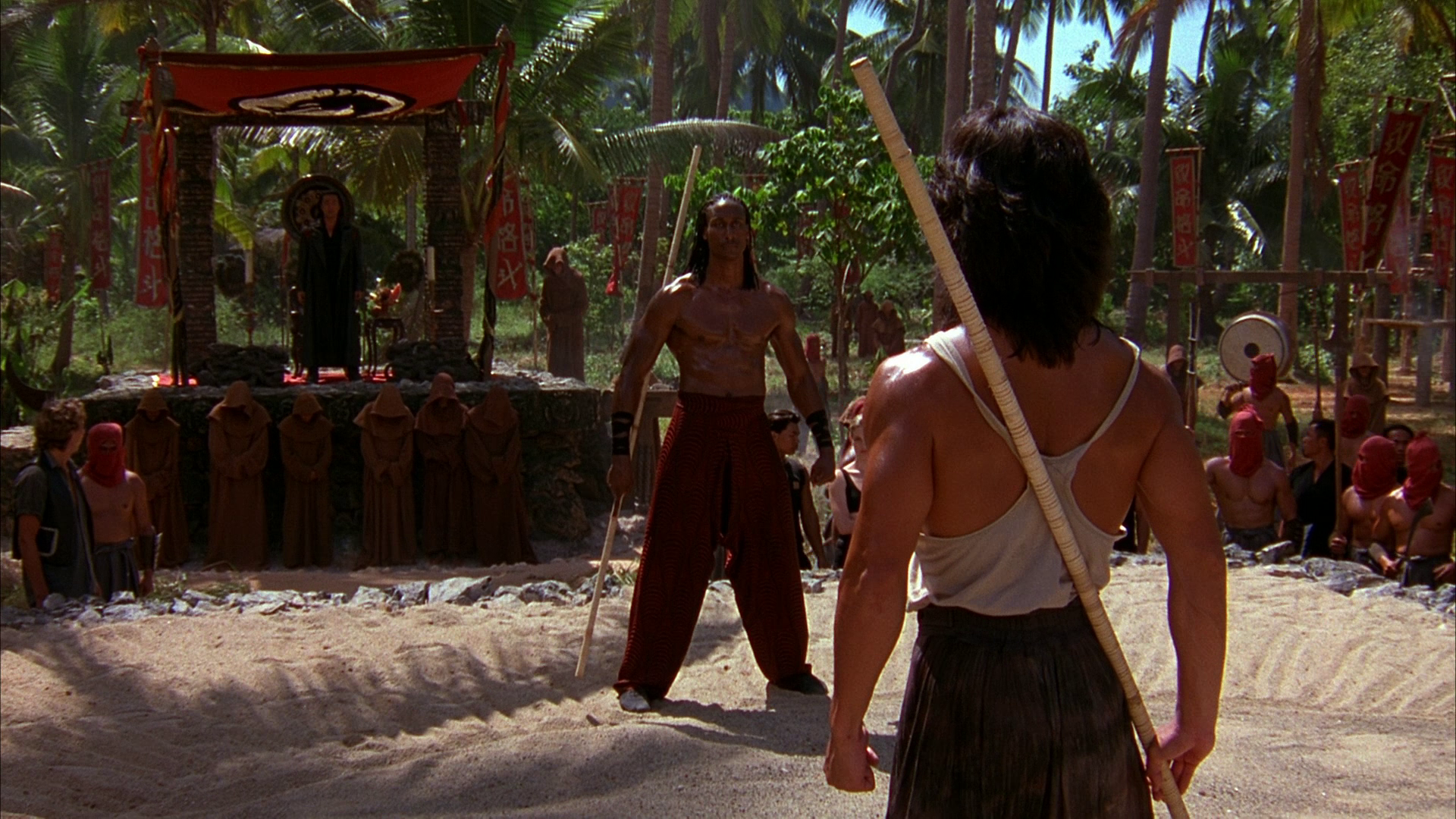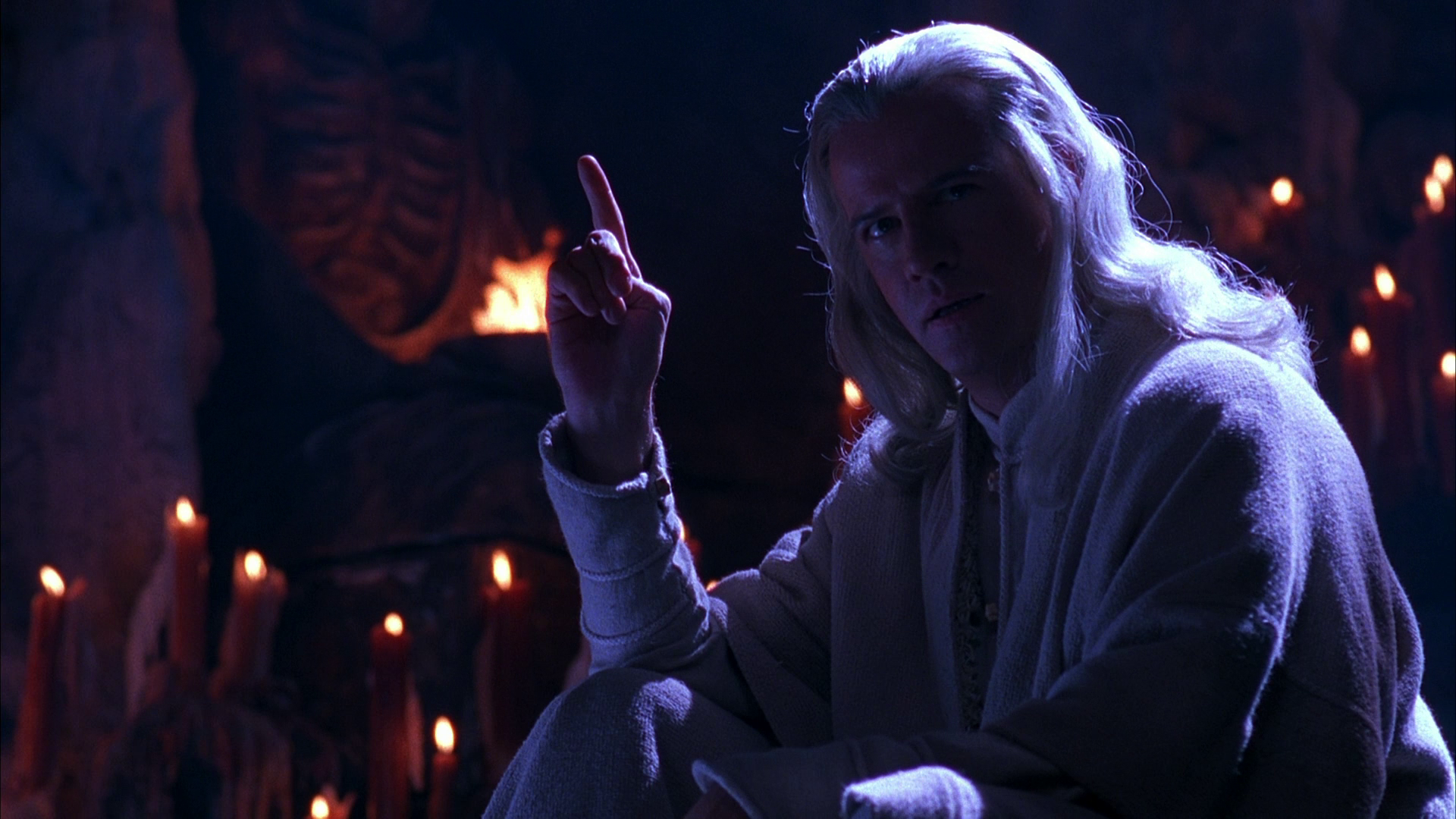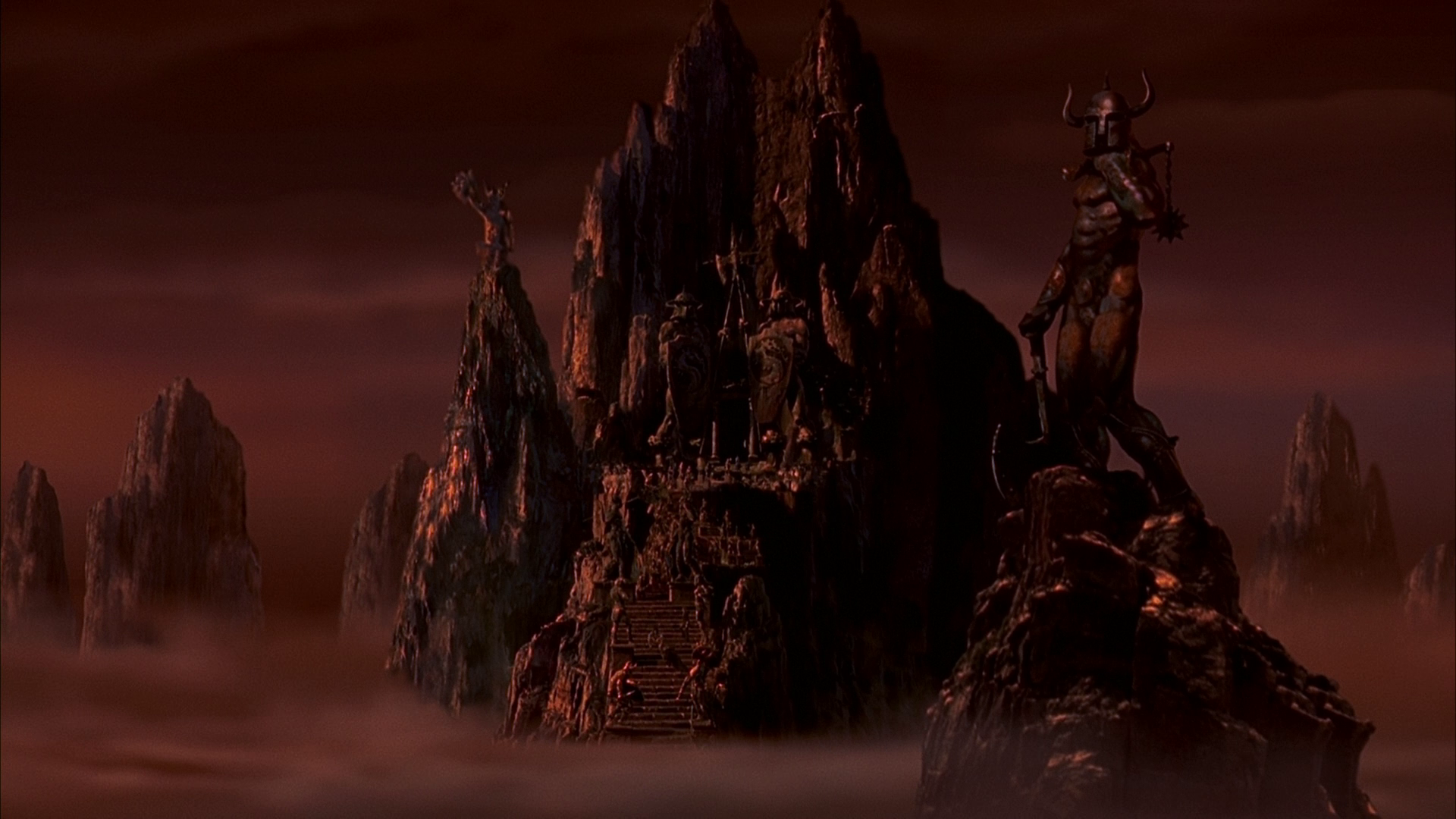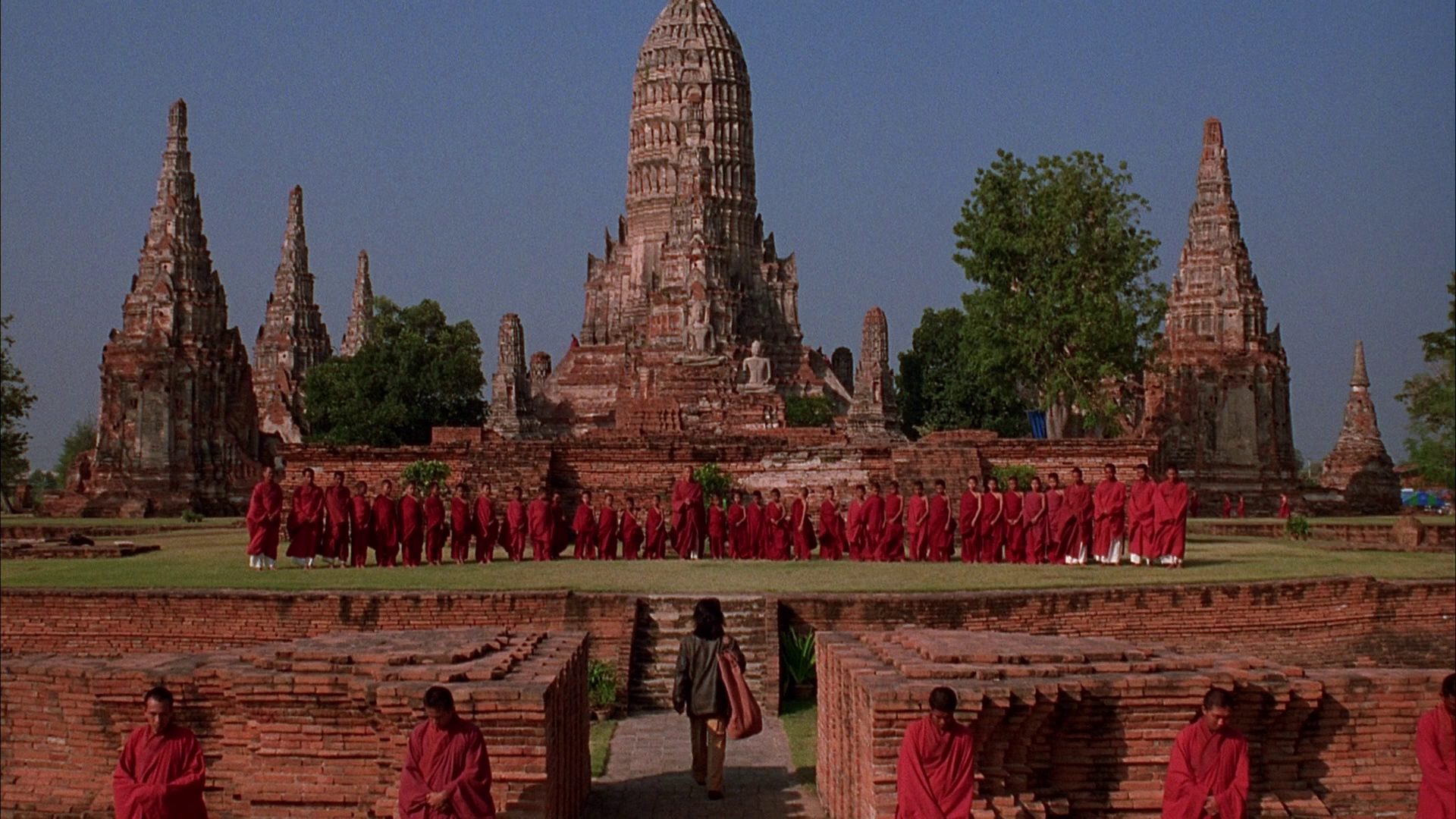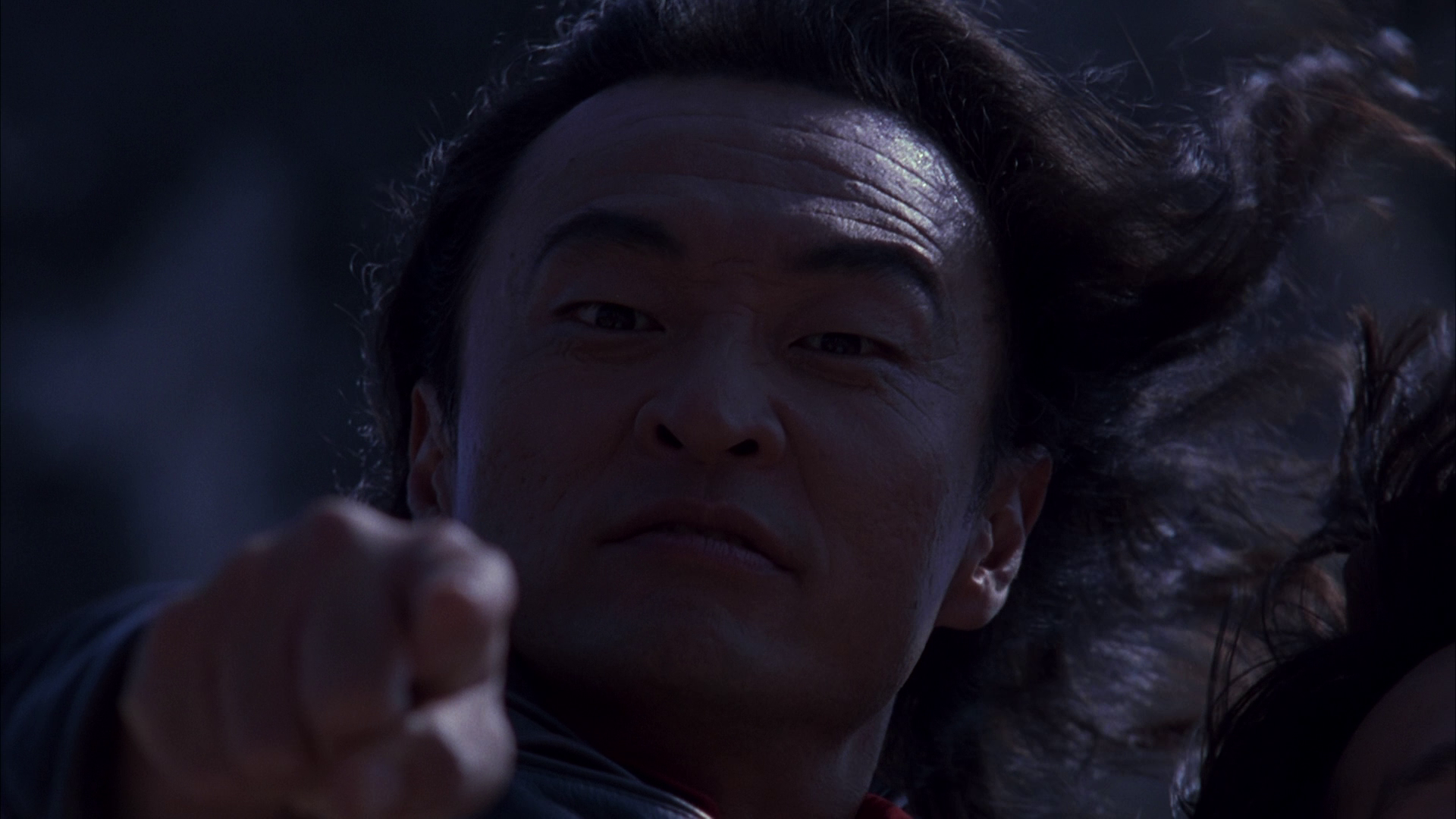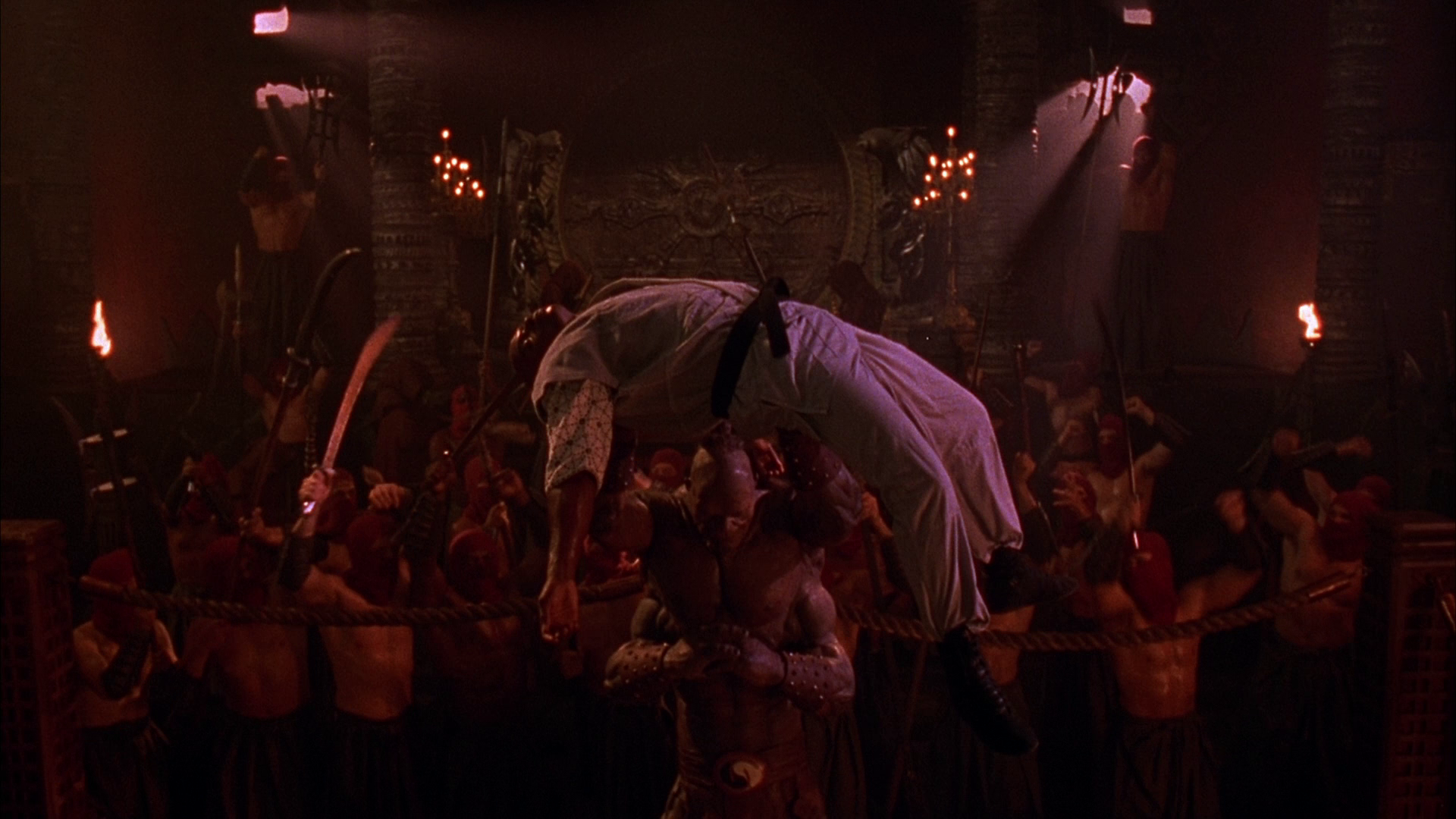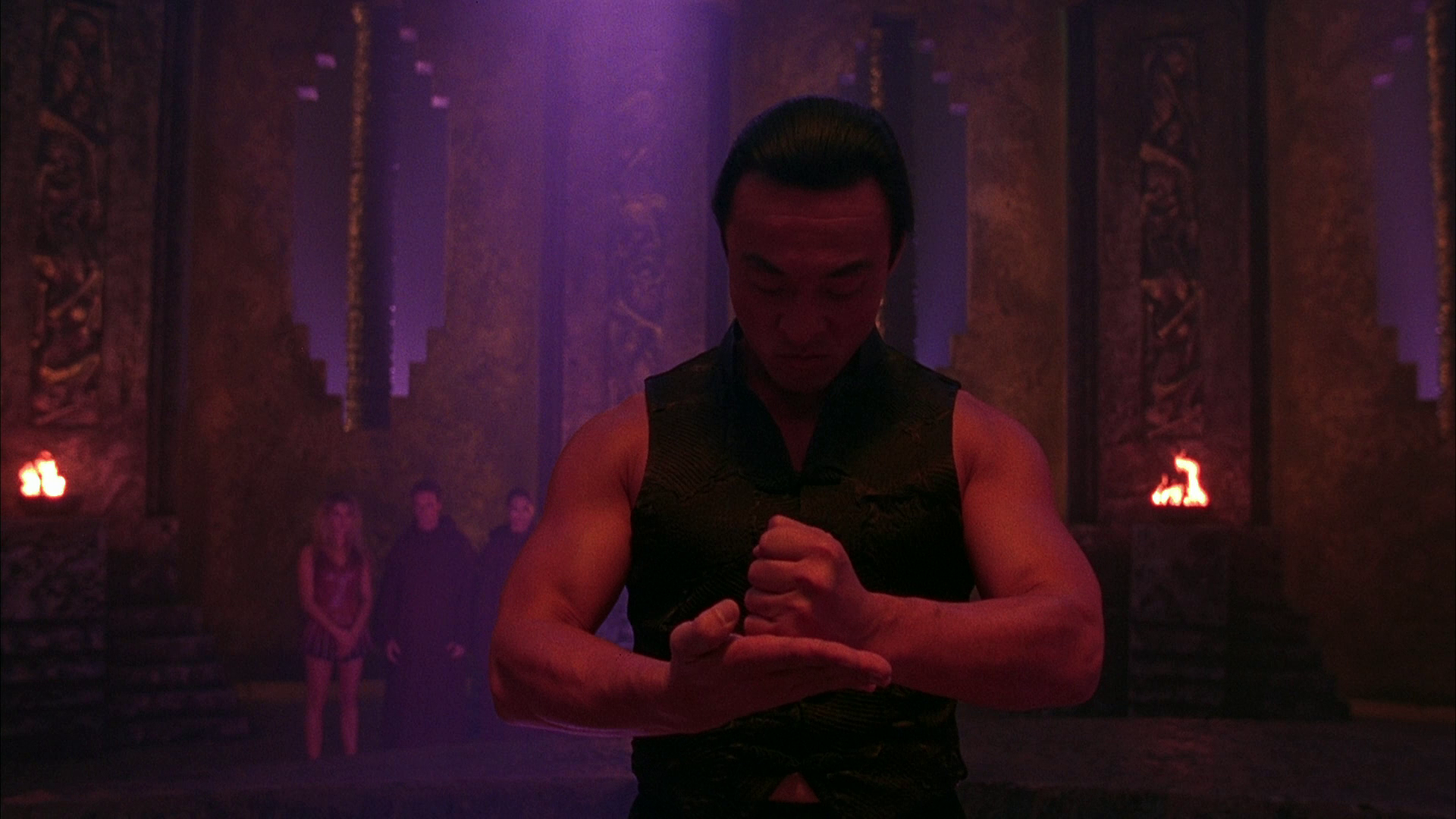Mortal Kombat (1995)
Director: Paul WS Anderson
Starring: Robin Shou, Linden Ashby, Cary Hiroyuki Tagawa, Christopher Lambert
Primary genre: Martial arts
Secondary genre: Action
Third genre: Fantasy
READ ALSO
Throw in a yell and some eye busting opening credits under one of the most recognizable themes in film history and Paul WS Anderson’s Hollywood debut involved the cinematic adaptation of … an arcade game. After the misfires of “Super Mario Bros” (1993), “Double Dragon” (1993) and “Street Fighter” (1994), nobody could have predicted that videogame flicks could be loud, colorful and fun.
A woke movie before woke was a thing, “Mortal Kombat” pays heavy homage to the Asian cultures it draws inspiration from featuring a multi-ethnic cast which service the story first and the diversity quotas later. Based on an exoskeleton of information, it tells a coherent story through a narratively simple catalyst (i.e., a martial arts tournament) copy-pasting Bruce Lee’s “Enter the Dragon” (1973) and incorporating a supernatural twist. When the source material runs dry, Kevin Droney’s script attempts to fill in the gaps by introducing new mythological elements that would later on become canon in the game series (e.g., Kano’s nationality, 10 tournament victories, Shang Tsung’s look) and a tongue-in-cheek approach that works in the film’s favor.
Its easy to follow structure is populated with an intriguing world, plenty of fan service, lore respect, limited exposition to ease newcomers, appealing archetypes, witty verbal counterpoints and welcoming snippets of Eastern Philosophy around guilt and impulsivity which insert a layer of gravitas to this superficial high-stakes death match. From our heroic trio, Robin Shou get’s the lion’s share of fighting giving an impressive physical performance and having the closest thing to an arc. Linden Ashby is perfect as Johnny Cage although he does not have much to do and Bridgette Wilson’s Sonya suffers even more as we race towards the finishing line.
Despite a restricted screentime, Christopher Lambert’s iconic take as Lord Raiden (almost) steals the show with his imposing voice and electrifying death stare sprouting lines like “The fate of billions will depend upon you” before laughing and apologizing promptly. Yet no one stands a chance against the legendary Cary-Hiroyuki Tagawa as Shang Tsung. Becoming the face of one of the game’s most enduring villains, he embeds Broadway like finesse in his line delivery with a phenomenally expressive visage, dominating the screen as an aristocratically authoritarian antagonist of a supernatural Machiavellian aura. “Your soul is mine” never sounded better!
Needless to say for a film whose has half title is “Kombat”, there is plenty of bang for your buck. Anderson employs aggressive stuntwork and Hong Kong choreography (the first Western movie to employ wire fu) to craft fresh and novel brawls which enduring proudly the test of time. While the infamous gore is absent (for marketing purposes), the fights remain brutal; crushed spines, broken necks, people are impaled, foreheads are slammed on the floor and an unfortunate individual is plummeted to death under a rain of blows. Yet, for all its sophisticated and fast paced skirmishes, the Kano/Sonya face off ends very quickly and despite his impressive animatronics, Goro can’t do much in the action department.
With a keen eye for candid visuals, the newbie Brit director uses every opportunity to bring to life the perilous Outworld. Jonathan Carlson’s production design is nothing sort of grandiose and under the crafty camerawork of John R. Leonetti’s, he favors atmosphere in a wildly inventive fantasy ride across several landscapes - whether it is tropical beaches, Shang Tsung’s gardens, or Goro’s lair - the practicality behind them is sensational. It is a visual extravaganza and despite some old CGI effects (it is more than three decades old), the rest (e.g., matte paintings, sporadically used comp) complement the film’s unique style within its vibrant palette and engulfing sound effects. Martin Hunter (of the “Full Metal Jacket” (1987) fame) makes the most of Anderson’s wide frames, slow motion, POVs, pull out shots and long Steadicam takes by enhancing the eerie ambience in a rewarding way along with George S. Clinton’s fusion score of techno, guitar riffs and Japanese instruments (e.g., Taiko drums, Shakuhachi flute) supplementing the proceedings with an innovative acoustic soundscape.
But you cannot talk about “Mortal Kombat” without mentioning its world famous soundtrack (e.g., Type O’ Negative, Juno Reactor, The Immortals) that captured the imagination of millions of teenagers around the globe; its high octane energy revitalizes the numerous fight sequences and The Immortals’ main theme - a definitive 90s pop culture moment - has become almost a de facto track for any martial art competition kicking all types of ass thirty years later.
“Mortal Kombat” might not punch high on the intelligence scale but in terms of entertainment value, it is rightfully and undeniably a classic gem. An unexpected worldwide hit, a three week strike as the number on movie in the US(!), a dedicated and large cult following, a 60 Metacritic score, a platinum soundtrack, a BMI award for Clinton’s work and an in-depth critical re-evaluation of its longstanding appeal happened for a reason. Time has been kind to “Mortal Kombat” due its strong production values, effective atmosphere, appealing performances, awesome soundtrack, love for the source material, tight fight choreography and an superb villain. What more do you want?
Beloved kick ass videogame adaptation
+Atmosphere
+Appealing characters
+Respect for the source material
+Amazing villain
+Frenetic direction
+Spectacular production design
+Aggressive stuntwork/fighting
+Awesome soundtrack/score
-Sonya/Kano fight is too short
-Sonya has nothing to do


